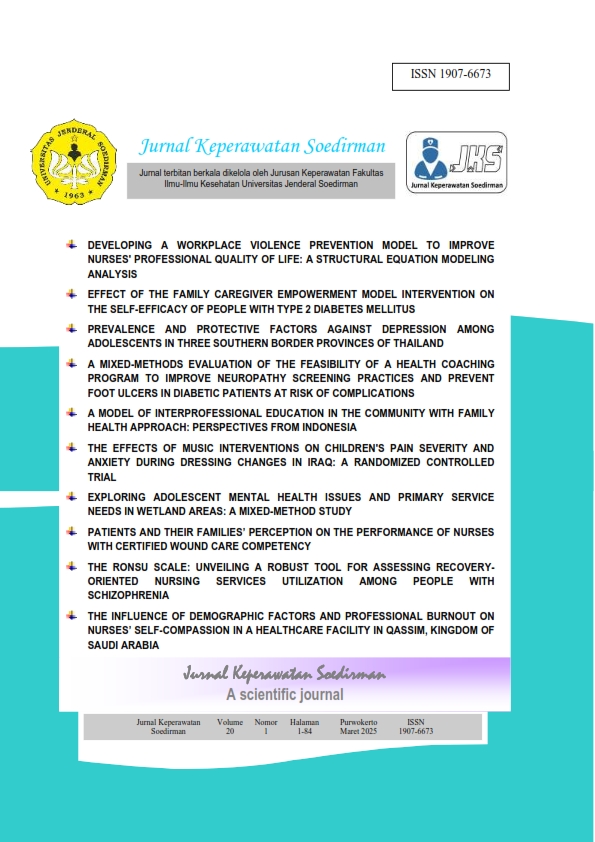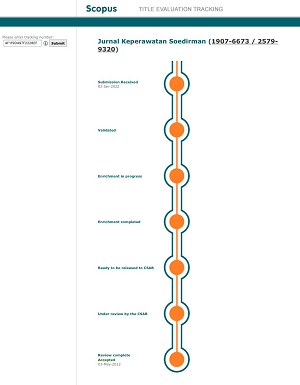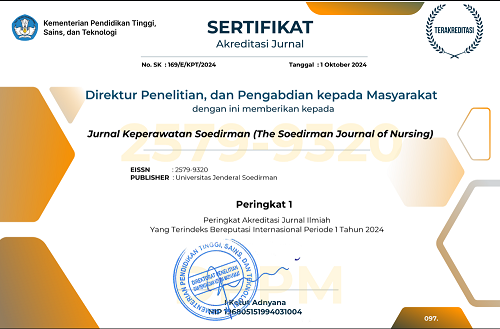Developing A Workplace Violence Prevention Model to Improve Nurses' Professional Quality of Life: A Structural Equation Modeling Analysis
Abstract
Nurses’ Professional Quality of Life (Pro-QOL) scores are important because they influence health service quality. Thus, assessing the nurses’ quality of professional life is essential to identify the organization’s strengths and weaknesses. This research aims to develop a Workplace Violence prevention model to improve nurses’ professional quality of life. This is an analytical observational study with a cross-sectional research design. The sample comprised 178 nurses working in private hospitals in Jember Regency, East Java Province. The determinants of workplace violence are directly influenced by nurse factors at 34.6% and patient factors at 46.1%. The factor influencing workplace violence the most is the patient factor, reflected by the patient's knowledge indicators. Coping is a mediating variable between workplace violence and professional quality of life. Positive coping strategies have a direct influence of 72.8% on nurses’ professional quality of life. This study concludes that patient factors influence the workplace violence prevention model, and patient knowledge can prevent workplace violence toward nurses. Additionally, positive coping strategies can help nurses to improve their professional quality of life.







.png)




_3.png)

 Kampus keperawatan unsoed
Kampus keperawatan unsoed  Published By Jurusan Keperawatan FIKES UNSOED
Published By Jurusan Keperawatan FIKES UNSOED jks@unsoed.ac.id
jks@unsoed.ac.id

